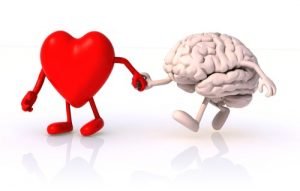Love is a word of great meaning and responsibility. Everyone thinks they know what love your partner means, but they will face setbacks on more than one occasion in their lives. Showing the love you feel for your spouse is not as easy as you might expect because he or she may speak a completely different love language from you.
What is a love language? Imagine the following scenario: tomorrow is your spouse’s birthday. For that occasion, as you love big celebrations, you prepare a surprise party for him/her. You spend time organizing it, invite all his/her friends and try your best to make it the night of his/her life.
But what happens if your spouse does not like large gatherings? He/she is introverted and prefers to be around fewer people. Thus, it becomes evident that husband and wife are not speaking the same love language.
How can you figure out what language is being used? How many types of love languages are there? I want to go more in depth with you into this matter and much more.
How to love your partner?
In order to love your partner the way he/she needs to be loved, we must first understand what love is.
Love is a powerful feeling of affection, which is shown in different ways. There are millions of points of views regarding love and getting them all to converge is complicated.
Love can be expressed in so many ways that some of them could cause disappointment — disappointment from not receiving the answer you expect from your partner.
When a man and a woman are satisfied with the love they feel and the way they communicate, that’s great news. In fact, it is God’s plan for us, to be on the same page in our marriages, that we are happy with each other. However, this is not the reality for all marriages.
If you do not feel satisfied with the way your spouse offers you his/her love, I recommend that you start an appropriate talk with him/her about this matter. Both of you must understand the importance of synchronizing the ways in which you feel loved. How does your partner feel most loved? You will know find out by discovering the love languages.
Love languages
One of the most essential lessons you must learn to love your partner the way he/she wants to be loved is determining which love language he/she uses. You may not have heard of them, but they are preferences that every person has when it comes to receiving and showing love. Not only does it apply in a loving relationship, but it also applies in other types of relationships, such as family relationships or friendships.
According to writer Gary Chapman, there are five love languages that are essential for relationships to improve and succeed. The main idea is to determine which types of languages are preferred and use this to your advantage. They are:
1. Words
There are people who are able to express their love through words. Expressing your affection through words of love, congratulations, words of support, or kindness has a great positive effect on the other person. The words that were just a simple compliment for you are, perhaps, for your wife, the recognition she expects.
In order to express yourself through this language, you can use direct and meaningful words. For example: “I love you so much” or “You are special to me.” Do not use words that you do not really feel, they have to come from the bottom of your heart, be credible, and you must say them in the right context. If you do not feel comfortable talking like this, maybe this is not your favorite love language.
2. Quality time
The world seems to be going faster than we can handle. Therefore, do not waste time and show your love to your loved ones by giving them quality time. You can share more of your day-to-day with them, just focusing on them.
The less rush and fewer distractions you have, the higher the quality of what you are doing will be. It may not seem important, but it is very important if you think about it.
3. Gifts
I do not mean that love can be measured by the price of a material gift, but that certain gifts can show dedication and love.
For example, if your wife has been exhausted lately due to her routine, giving her a spa day so she can relax would be an option. Or, if your husband constantly complains about his desk always being unstable, giving him a new one would be an excellent gift. In both cases, the spouses are thinking about their other partner’s well-being, about what he/she needs. Thus, it is considered one of the love languages.
4. Acts of service
Doing acts of service like cleaning, cooking, and fixing things is one of the many love languages. These acts of service are not done with the hope of receiving something in exchange, they are not mandatory. However, doing them will make the one you love smile.
The food your mother prepared for you, or your father repairing your old bicycle over and over again, were both ways in which they were expressing their love to you.
5. Physical contact
Finally, the simplest and most direct form of communication is physical contact. From touching, caressing, or kissing, it is normal for couples to show their love this way. Even so, showing physical affection such as pats on the shoulder or hugs are also a good way to show your love to your children, family members or friends.
How do I identify what my partner likes?
In order to find out how to love your partner and what he/she prefers, first you need to understand what love language you speak. How do you prefer to receive love? How do you tend to express it? Think about how you react to different love languages because you will need to tell the one you love.
Invite your partner to open up to you and to be honest about the gestures of love that he/she likes the most. To really love is to care about your partner’s feelings as much as you care about your own. Only in that way cab we understand its power. Love is definitely a language we can all speak.
Do you want to know more about this subject? You can do so by calling 407 618 0212.


 [vc_row][vc_column][vc_empty_space height=”25px”][ultimate_heading main_heading=”Emotional Intelligence Is Not Something Natural” margin_design_tab_text=””][/ultimate_heading][vc_empty_space height=”25px”][vc_column_text]
[vc_row][vc_column][vc_empty_space height=”25px”][ultimate_heading main_heading=”Emotional Intelligence Is Not Something Natural” margin_design_tab_text=””][/ultimate_heading][vc_empty_space height=”25px”][vc_column_text]

 [/vc_column_text][/vc_column][/vc_row][vc_row][vc_column][vc_empty_space height=”25px”][ultimate_heading main_heading=”You Cannot Change What You are not Aware of.”][/ultimate_heading][vc_empty_space height=”25px”][vc_column_text]
[/vc_column_text][/vc_column][/vc_row][vc_row][vc_column][vc_empty_space height=”25px”][ultimate_heading main_heading=”You Cannot Change What You are not Aware of.”][/ultimate_heading][vc_empty_space height=”25px”][vc_column_text]
